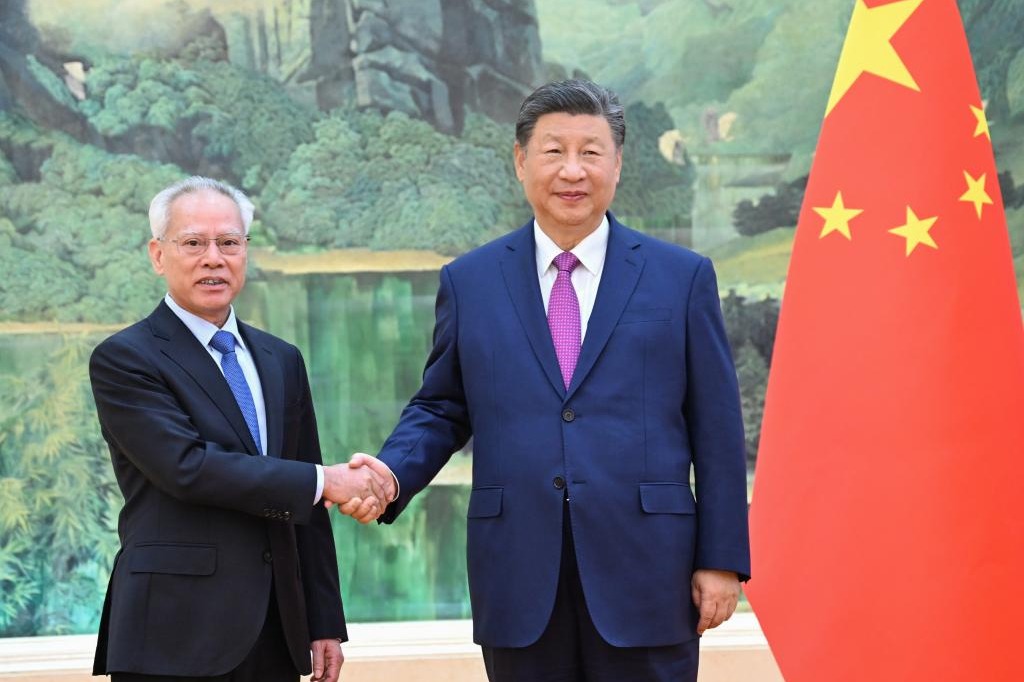Per capita GDP, HDI show China still 'developing'
By Kong Qingjiang | China Daily | Updated: 2023-04-10 10:12

On March 27, the US House of Representatives unanimously approved draft legislation requiring the US Department of State to change China's status as a "developing country" in international organizations where the United States participates or is part of, and to modify China's relevant status to a "developed country". Moreover, the draft also requires Washington to prevent Beijing from obtaining any preferential treatment in international organizations by continuing to utilize its "developing country" status.
A US Republican senator commented that China is the second-largest economy in the world, behind only the US. Since the US is treated as a developed country, China should be extended the same treatment.
But is China truly a developed country?
There is no generally recognized criteria to determine whether a country is developing or developed. What is certain is that whether a country is a developing country or developed country is not defined by the volume of economic activity of the country concerned. Should this be a standard, India should already have been determined to be a developed country. There are some 30 countries that are widely recognized or self-designated as developed countries — some are small in terms of population, like Switzerland, whose total economic volume is far below that of Nigeria, a recognized developing country. Nevertheless, many small countries are self-designated as developed countries as their per capita GDP is often far higher than that of Nigeria.
A comparison of the per capita GDP of China and South Korea also makes sense. The per capita GDP of the ROK exceeded $20,000 in 2006 and reached $35,000 in 2021, the year it was determined to be a developed country. China's per capita GDP was only $10,000 in 2019. In 2021, it was still less than that of Korea 15 years ago. Indeed, China has risen to be the second-largest economy as it steadily goes along its own path of development. However, its per capita GDP is still far less than that of any of the 30-odd developed countries.
In order to assess the economic status of a country, the Human Development Index has been developed by the United Nations. The HDI is a statistical composite index of life expectancy, education — mean years of schooling completed and expected years of schooling upon entering the education system — and per capita income, along with other variables. These indicators range from 0 to 1.0, with 1.0 being the highest possible. HDI is stratified into four tiers: very high human development (0.8-1.0), high human development (0.7-0.79), medium human development (0.55-0.70), and low human development (below 0.55). In 2000, 2010, 2019, 2020 and 2021, China was rated 0.584, 0.691,0.762, 0.764 and 0.768, respectively. It is no coincidence that most developed countries have HDI scores of 0.8 or above. Therefore, China's score is still far below those of developed countries.
It should be pointed out that a sheer high per capita GDP or a high HDI score does not necessarily mean a nation is a developed country. A typical example is South Korea. It was not until 2021 that the ROK rose from "developing country" to "developed country" status, at which time it declared itself so at the 68th session of the Trade and Development Board of the United Nations Conference on Trade and Development.
In this regard, it should be pointed out that it has been an international practice for a country to self-designate whether it is developing or developed. A country "graduates" to becoming a developed one after it self-judges that it is indeed a developed country. Not only the ROK, but Brazil has also proceeded in such a manner. That is to say, it is up to a country itself to self-designate its economic status.
In light of its per capita GDP and HDI score, it is fair that China remains a developing country. China has no reason to proclaim itself to be a developed country.
The above-mentioned draft US bill has gone so far as to designate a country as developed. As a matter of fact, this is not the first time that Washington has attempted to classify China as a developed country. During former president Donald Trump's tenure, the US pressed the WTO into changing China's economic status. The White House even threatened to take action if the WTO did not make changes.
Why is the US so obsessed with China's economic status?
According to WTO agreements, developing country members are entitled to special and differential treatment as compared with developed country members, including lower levels of market liberalization, longer transitional periods to meet obligations or implement results of negotiations, greater flexibility in using policy instruments or maintaining policy space as well as access to technical assistance. As a developing country, China is lawfully entitled to such SDT. Fearing that the SDT would put China's products in an advantaged position vis-a-vis its own products in the international market, the US has been unhappy with China's developing country status with the WTO. However, China did not have full access to the SDT because it opted to join the WTO on terms and conditions different from those for other developing countries and because China opted not to take part in related privileges. For example, China waived its right as a developing country not to protect foreign patents related to COVID-19 vaccines. The US should be aware of this fact. However, Washington still seems obsessed with China's phantom privilege as a developing country.
The apparent reason why the US cares so much about China's developing economic status seems to be that it aspires to weaken China's alliances with developing countries. Over the past decades, China's developing country identity has blessed Beijing with a like-minded community. The developing country members of the community share similar economic conditions, historical backgrounds and even political appeal to some degree. They have collectively risen as a potent political force on the international stage. China — being the world's largest developing country — has seen its voice on the global stage become much more audible. In this context, it becomes clear that what the US is doing is nothing more than a ploy to isolate China on the international stage.
The writer is dean of the School of International Law at the China University of Political Science and Law.
The views don't necessarily reflect those of China Daily.
























